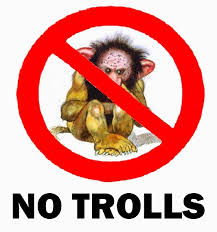|
Dear Papabear,
I was wondering, knowing that you’re a professional editor, if you could offer any advice to a young rodent who wishes to get a book published? I know you’ve had a few furs write to you about getting their written works out there, but I think my case is slightly different because of three main fronts:
I live literally a short walk away from a book printers, so what I was considering was once I get it done, get it checked over and am happy with it, I send it over to them and only get a small number of copies printed (for now, 25 is the number I’m thinking of). I still need to check with them if the dimensions I’ve set my pages at are okay, but if they do need to change, I don’t think they’d be too far off. However, some people who I either work with or am friends with have been telling me to not “sell myself short” and see if I can get a publisher onboard. I’m glad they think positively about me and what I’ve written –– more than I ever can –– although I really doubt if I’d actually be able to get it published by anyone other than myself. It’s a very niche topic, I don’t have a very strong network, I have a hard enough time trying to get commissions for my art anyhow, and… you know, I’m not exactly the next Rob Janoff [a famous corporate logo designer] or Saul Bass [a graphic designer and Oscar-winning filmmaker]. I’ve been writing this book for two main reasons. One reason that it’s a topic I legitimately enjoy. I have a fascination with language, how it functions, how it’s evolved and how it continues to evolve (despite my futile attempts at learning other languages like Welsh, French and BSL), for which studying typography ties in nicely with. The other reason I’ve been writing this is because I figure it’d be good to add to a portfolio and would help me with my career. What do you think, Papa Bear? Would it be worth me sending what I’ve written off to a few publishers to see if they’d make it a reality? Or, is my initial plan of getting it printed myself and selling what I can (albeit I have a feeling most would be donated as gifts anyhow) what I should stick with? Hugs, Charleston * * * Dear Charleston, As you know, my main line of work is nonfiction publishing, so you’ve come to the right bear. Let me explain the process a little bit. There are two types of acquisitions: solicited and unsolicited. Solicited manuscripts happen when a publisher has a topic about which they want to publish a book and then they actively seek out an appropriate author to tackle it; unsolicited is when publishers receive manuscripts either from an agent or from a non-agented author. Manuscripts from agents—especially any agent with whom the publisher has dealt with in the past—would naturally take priority. Unsolicited manuscript gets tossed into a slush pile for review. Often, this review is very cursory, and it is pretty rare for unsolicited, unagented nonfiction books to see the light of day. What can you do to increase your odds? First thing: check out the competition. This is easily done with the Internet these days. On the subject of typography, you’re going to be competing with people like Ellen Lupton, who is a curator of design at the Smithsonian. She has written a couple of books on the subject that are highly respected. Check them out. How would your book compare to hers? Would it offer something new and different? Does it address a different audience? Is it more accessible to readers? If not, then you’re in for an uphill battle. However, just because one publisher like Princeton has released a book doesn’t mean another publisher might not want to have their own book on the topic. My publisher, Visible Ink, often releases books on subjects that others have addressed because there is a large enough audience for books on history, ethnic studies, and the paranormal. On the other hand, publishers like mine will always choose a prestigious name author over someone no one knows (like you, sadly). Next, find a copy of The Literary Marketplace online or at your local library. The LMP is the source for locating publishers and agents who are accepting manuscripts, and it tells you what subjects and genres they publish so you don’t waste your time sending your book to someone who is not interested in the topic. Next, write a cover letter. Here’s a nice little column about that. It is a bonus to you that the book is finished. Publishers are more interested in taking a gander at a completed manuscript than something that is a mere proposal, especially, again, from untested authors. Send out as many query letters and manuscripts that you can. I sent out over a hundred before my novel was accepted. It takes a lot of legwork. Even Margaret Mitchell and Stephen King got lots of rejections at first, so keep trying and don’t be discouraged. As for, finally, my opinion as to whether you should self-publish or try to get an established publisher: there are good and bad points. The bad news is that when you publish through someone else, you are not going to get very much out of it (people like J. K. Rowling are the exception, not the rule). The publisher may give you a small advance on royalties and then a pittance percentage if the book sells past a certain number of copies. You’re not going to earn much. Also, you will be releasing control to the publisher, who will likely take your rights, take charge of the design of the book (ironically, in your case), and take charge of the marketing. The good news about this is that they handle everything, so it is less work for you. On the other hand, if you self-publish, you have to put up any costs yourself, but you will have much more control over the book and keep more of the profits. This is why I will be handling my next book by myself. Since I can do everything except print-and-bind and distribution, I can keep most of the profits. This is not the case with many authors who need help with typesetting and so on. You, I take it, can handle these things, so it could be well worth your while to self-publish, especially if you have a good marketing plan. Good luck! Papabear
0 Comments
Leave a Reply. |
Categories
All

A note on comments: Comments on letters to Papabear are welcome, especially those that offer extra helpful advice and add something to the conversation that is of use to the letter writer and those reading this column. Also welcome are constructive criticisms and opposing views. What is NOT welcome are hateful, hurtful comments, flaming, and trolling. Such comments will be deleted from this site. Thank you.
|

 RSS Feed
RSS Feed


